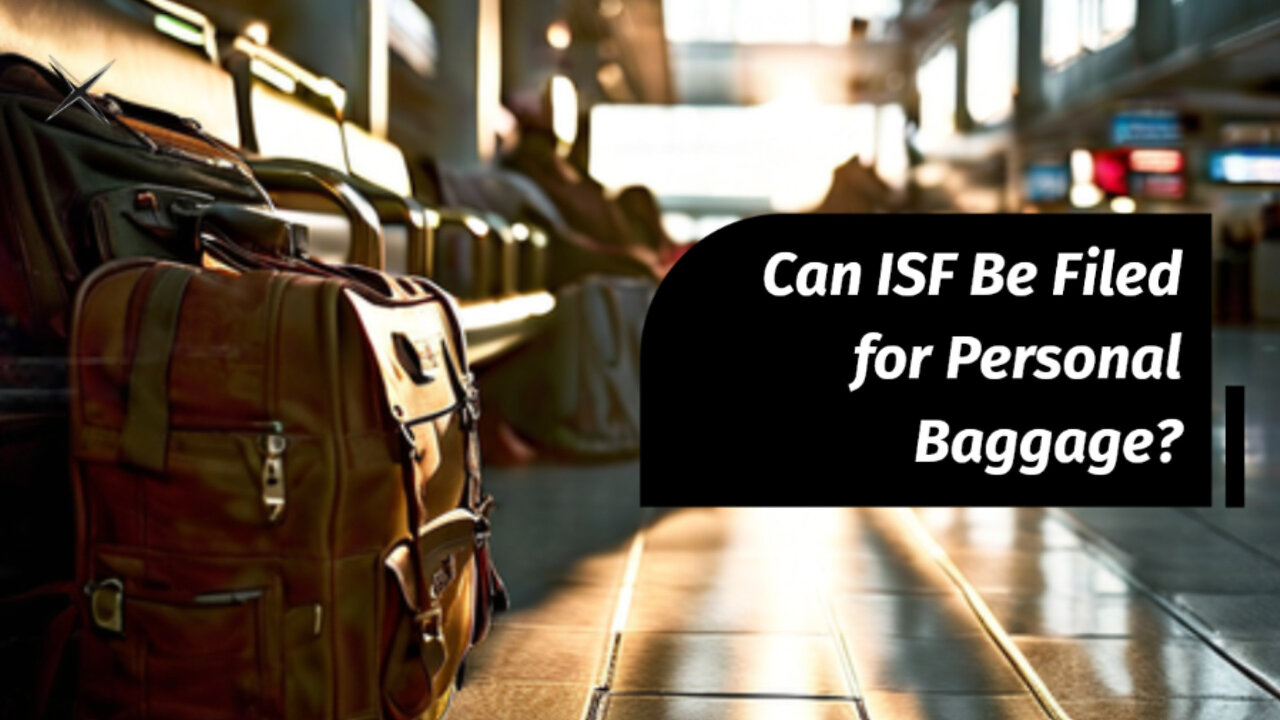Premium Only Content

Understanding ISF: Exemptions for Passenger Baggage and Personal Effects
ISF Cargo | Phone: 786-865-0459
Email: isf@isfcargo.com | https://isfcargo.com
Welcome back to our channel, where we discuss all things related to customs brokerage and international trade. In today's video, we will be exploring an important question: Can the Importer Security Filing (ISF) be filed for passenger baggage or personal effects? Let's dive in!
When it comes to the ISF, it is primarily required for shipments that are destined to enter the United States by vessel. It is an essential part of the customs clearance process, serving as an advance notice regarding the details of the imported goods. However, it's important to note that the ISF does not apply to passenger baggage or personal effects, which are typically exempt from this requirement.
Customs regulations provide certain exemptions for passenger baggage and personal effects. These exemptions recognize that individuals traveling with their personal belongings should not be subject to the same level of scrutiny as commercial shipments. Importantly, this helps to streamline the customs process for travelers and avoids unnecessary delays.
To better understand why the ISF does not apply to passenger baggage or personal effects, it's essential to differentiate between commercial shipments and non-commercial items. Commercial shipments typically involve goods being imported or exported for business purposes, while non-commercial items are those brought in by individuals for personal use or consumption.
The ISF requirements were introduced by US Customs and Border Protection (CBP) to enhance the security of commercial shipments entering the United States. The ISF includes specific information about the consignee, seller, buyer, manufacturer, and country of origin, among other details. Filing the ISF allows CBP to conduct risk assessments and target any potential threats to national security.
In contrast, personal effects and passenger baggage are considered non-commercial shipments, as they are carried by travelers for personal use. These items include clothing, personal electronics, and other possessions necessary for the traveler's stay. Since these items are not part of a commercial transaction, they are exempt from the ISF filing requirement.
While most passenger baggage and personal effects are exempt from the ISF requirement, it's important to note that there may be exceptions and special circumstances. For example, if the passenger's baggage includes new items intended for sale or if there are items subject to specific customs regulations, an ISF filing may be necessary. It is always advisable to consult with a customs broker or the relevant authorities to determine the specific requirements for your situation.
In conclusion, the Importer Security Filing (ISF) is not typically required for passenger baggage or personal effects. Customs regulations recognize the distinction between commercial shipments and non-commercial items, aiming to facilitate the customs process for travelers while maintaining security. However, it's crucial to stay informed about any exceptions or special circumstances that may apply to your specific situation.
Thank you for watching today's video! If you found this information helpful, make sure to subscribe and hit the notification bell to stay updated on all our upcoming videos. We appreciate your support and look forward to bringing you more valuable content related to customs brokerage and international trade. See you next time!
#usimportbond #isfcustomsbroker #uscustomsclearing #isfentry
Video Disclaimer Here: This content is for educational use and not associated with any US government body.
01:00 - Customs Regulations
01:50 - Importer Security Filing (ISF)
02:22 - Personal Effects and Passenger Baggage
03:20 - Conclusion
-
 6:14
6:14
Silver Dragons
1 day agoAmerican Silver Eagle Coins - Dealer Reveals Everything You NEED to Know
21.3K6 -
 19:18
19:18
Neil McCoy-Ward
1 day ago🚨 The USAID Scandal Goes Way Deeper Than We Could Have Imagined!
15.2K25 -
 14:29
14:29
Bearing
10 hours agoTHE BIG BALLS EFFECT - Democrats MELT DOWN Over DOGE & USAID 🔥
30.3K65 -
 11:35
11:35
China Uncensored
1 day agoChina Nuclear Fusion Breakthrough Shocks The World
39.4K34 -
 50:19
50:19
AlaskanBallistics
19 hours ago $1.45 earnedI Love This Gun Podcast Episode 6
34.8K -
 16:35
16:35
DEADBUGsays
1 day agoPolice Stories Ep4
24.7K -
 6:15
6:15
RTT: Guns & Gear
1 day ago $0.78 earnedSaying Goodbye To A Legend - Demolition Ranch Leaving YouTube
14.9K4 -
 1:33:27
1:33:27
Michael Franzese
22 hours agoGovernment STEALING More than the Mob - Elon Musk's Report
60.8K51 -
 1:21:15
1:21:15
Tactical Advisor
7 hours agoThe Vault Room Podcast 008 | PSA Changing the Firearms Game and Trump Exposing Government Spending
77.1K21 -
 3:09:57
3:09:57
LittleDude games
11 hours agoSaturday Fortnite Hunters // LittleDude
61.3K10